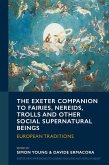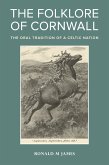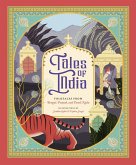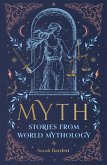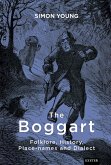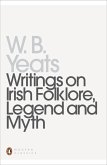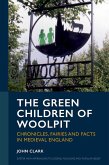What is it like to meet a being from another world? This book collects testimony from eight hundred years of witnesses baffled by the supernatural breaking into their lives. Close reading of miracle collections, chronicles, saints' lives and sermons shows how they depended on first-hand vernacular voices, never quite suppressed in the Latin of the clergymen who transcribed them.
When people saw spirits, surface identity mattered less than common nature. Whether manifesting as fairies, revenants, local saints or fiends, they came in stock types: goblins, lovers, hunters, pygmies, dogs, indescribable shape-shifting objects. Just as they had preferred forms, so they appeared in particular places. The tradition of English supernatural place-names, never before gathered into a corpus, matches the medieval texts to show what places were haunted and why. The dark pools into which otherworldly things were exorcised, the paths on which they led travellers astray, the hills onto which they descended in search of people to command and seduce, and the meadows where they danced-all these can be found on the cognitive map of the peasantry.
This book sheds new light on anomalous experience in medieval life and the relations it forged between vernacular life-stories and the gate-keepers of the written word. Fairies could cure as well as harm, prophecy as well as deceive: that made them a disruptive force in history, theology and morals. They challenge our ideas of a church-dominated society and once they are admitted into the picture, the Middle Ages will never look the same.
When people saw spirits, surface identity mattered less than common nature. Whether manifesting as fairies, revenants, local saints or fiends, they came in stock types: goblins, lovers, hunters, pygmies, dogs, indescribable shape-shifting objects. Just as they had preferred forms, so they appeared in particular places. The tradition of English supernatural place-names, never before gathered into a corpus, matches the medieval texts to show what places were haunted and why. The dark pools into which otherworldly things were exorcised, the paths on which they led travellers astray, the hills onto which they descended in search of people to command and seduce, and the meadows where they danced-all these can be found on the cognitive map of the peasantry.
This book sheds new light on anomalous experience in medieval life and the relations it forged between vernacular life-stories and the gate-keepers of the written word. Fairies could cure as well as harm, prophecy as well as deceive: that made them a disruptive force in history, theology and morals. They challenge our ideas of a church-dominated society and once they are admitted into the picture, the Middle Ages will never look the same.
Dieser Download kann aus rechtlichen Gründen nur mit Rechnungsadresse in A, D ausgeliefert werden.



